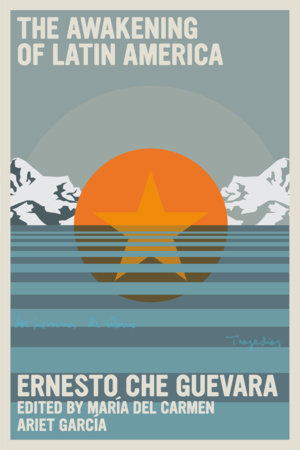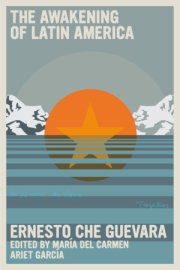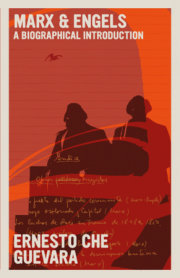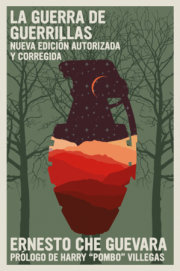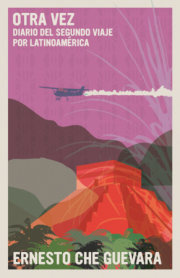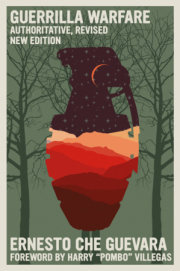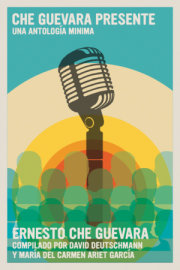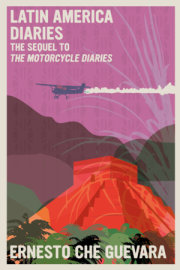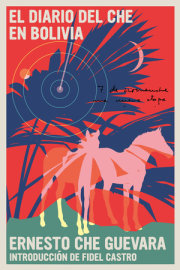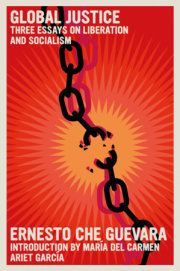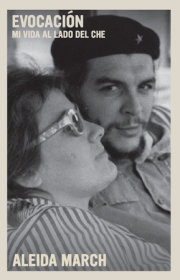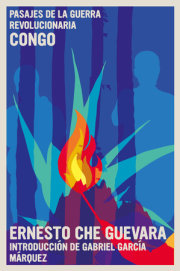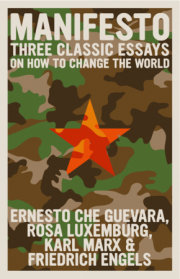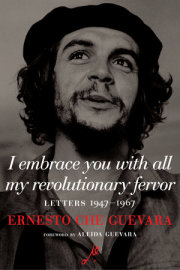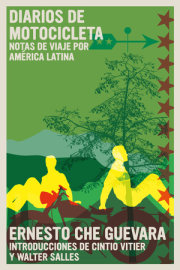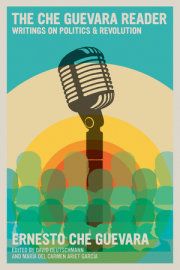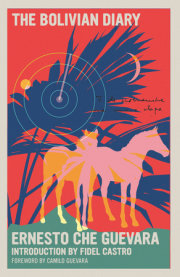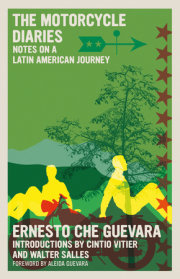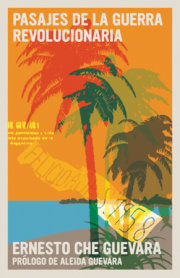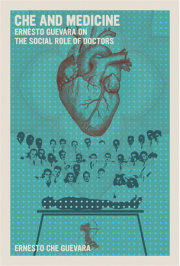Ernesto Che Guevara: Biographical Note
Chronology of Ernesto Che Guevara
Editor’s Preface
Introduction María del Carmen Ariet García
PART ONE: Discovering Latin America 1950–56
Introduction
Travels in Argentina (1950)
Excerpts from “The Bicycle Diaries”
First Trip through Latin America (1951–52)
Excerpts from “The Motorcycle Diaries”
A Second Look at Latin America (1953–56)
Excerpts from “Latin America Diaries”
Doctors and their Environment
The Role of the Doctor in Latin America
Reading Notes
Historia verdadera de la conquista de la Nueva España by Bernal Díaz del Castillo
La crónica del Perú by Pedro Cieza de León
La araucana by Alonso de Ercilla
Facundo (Civilización o barbarie) by Domingo F. Sarmiento
El Evangelio y el Syllabus y Un dualismo imposible by Dr. Lorenzo Montúfar
Martín Fierro by José Hernández
Obras escogidas by Enrique Gómez Carrillo
Martí: Raíz y ala del libertador de Cuba by Vicente Sáenz
Breve historia de México by José Vasconcelos
Trayectoria de Goethe by Alfonso Reyes
La rebelión de los colgados by Bruno Traven
Biografía del Caribe by Germán Arciniegas
Mamita Yunai by Carlos Luis Fallas
Canto General by Pablo Neruda
Guatemala: la democracia y el imperio by Juan José Arévalo
El hechicero by Carlos Solórzano
Journalism (1953–54)
“The View from the Banks of the Giant of Rivers”
“Machu-Picchu: An Enigma in Stone of the Americas”
“The Dilemma of Guatemala”
“The Workers of the United States: Friends or Enemies?”
Poems (unpublished)
To the Bolivian Miners
Who Cares?
Spain in America
A Tear for You
Invitation to the Road
Uaxactún… Sleeps
Selected Letters (1953–56)
Books Read in Adolescence
PART TWO: Latin America from Within (1956–65)
Introduction
1956–58: The Revolutionary War in Cuba
Articles
“How Cuban the World Seems to Us”
“Our Soul is Full of Compassion”
Interview
Interview by the Argentine Journalist Jorge Ricardo Masetti
1959
Article
Latin America from the Afro-Asian Perspective
Speech
Speech to the College of Medicine, Havana
Interview
Interview for Radio Rivadavia, Argentina
Letter
1960
Articles
“Regional Disarmament and Other Acts of Submission”
“Don’t be Stupid, Buddy, and Other Warnings”
“Knee Bends, International Organizations and Genuflections”
“Caracero, the Argentine Vote and Other Rhinoceroses”
“Ydígoras, Somoza and Other Proofs of Friendship”
“The Marshall Plan, the Eisenhower Plan and Other Plans”
“Nixon, Eisenhower, Hagerty and Other Warnings”
“Accusations at the OAS and United Nations and Other Stabs”
“The ‘Court of Miracles’ and Other Devices used by the OAS”
“A Tiny Bit is a Big Enough Sample and Other Short Stories”
Speeches
Speech to the Latin American Youth Congress, Havana
In Support of the Declaration of Havana, Camagüey
Farewell to the International Volunteer Work Brigades
Selected Letters
1961
Article
Cuba: Historical Exception or Vanguard in the Anticolonial Struggle?
Speeches
“Economics Cannot be Separated from Politics.” First intervention at the CIES Conference, Punta del Este
“The Real Road to Development.” Second intervention at the CIES Conference, Punta del Este
Cuban Television interview about the Alliance for Progress and the CIES Conference in Punta del Este
Letter
1962
Articles
“Tactics and Strategy for the Latin American Revolution”
“El Patojo”
Speeches
The Cuban Revolution’s Influence in Latin America
Speech to the Argentines Living in Havana
1963
Article
“Guerrilla Warfare: A Method”
Letter
1964
Speech
Response to the Attacks against Cuba in the UN General Assembly, New York
Letter
Reading Lists (Cuba 1956–65)
PART THREE: The Americas United: Revolutionary Internationalism (1965–67)
Introduction
Congo Diary. Excerpt from the epilogue
Message to the Tricontinental: “Create two, three… many Vietnams”
Bolivian Diary. Excerpts
Documents from Bolivia
Communiqué No. 1: To the Bolivian People (March 27, 1967)
Communiqué No. 2: To the Bolivian People (April 14, 1967)
Communiqué No. 3: To the Bolivian People (May 1967)
Communiqué No. 4: To the Bolivian People (June 1967)
Communiqué No. 5: To the Bolivian Miners (June 1967)
Instructions to Urban Cadres (January 22, 1967)
Reading Lists (1965–67)
Reading Plan for Bolivia
Index

